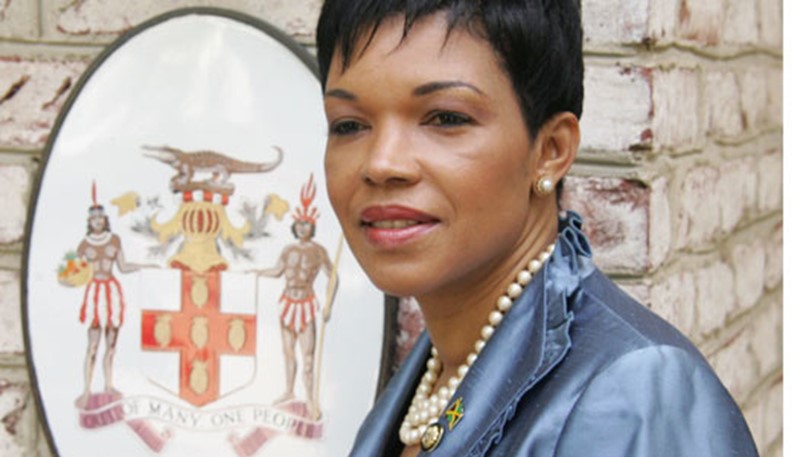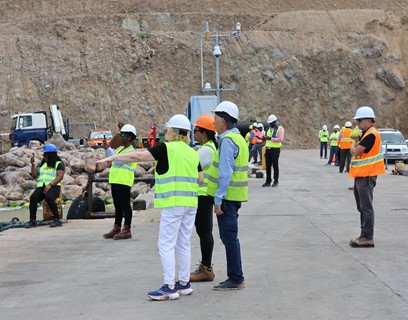
Jamaica's Ambassador to the United States Audrey Marks has called on the US government to improve the alignment of the various aspects of US domestic and foreign policy targeted toward Jamaica and the Caribbean, in order to support development goals, and ensure that economic and social gains are not erased.
She pointed out that "often, actions taken by the US in pursuance of one aspect of domestic or foreign policy, have unintended consequences for our countries and undermines the efforts of other US agencies to achieve the overall goal of a more secure third border with the Caribbean."
Marks made her comments on Wednesday as she testified on Capitol Hill before the United States Senate Caucus on International Narcotics control hearing on US-Caribbean Security Cooperation.
She told the US lawmakers that "if the Caribbean is truly a valued 'third border' of the United States, then the region must be treated with the same degree of economic considerations as the other two if there is to be an improvement in the existing security cooperation between the USA, Jamaica and the Caribbean as a whole.
She said, "Jamaica believes that socio-economic development is the most critical pillar of the counter-narcotics, anti-crime strategy. Yet, for too long, scant attention has been paid to this pillar, which, despite our combined efforts amounting to millions of dollars and hundreds of expended human lives we have not been able to have the lasting effect that we desire."
Marks noted that "Jamaica's vulnerability based on its geographical location and porous national borders remain a major challenge since the security measures implemented at both our controlled and uncontrolled ports and at our unprotected coastline are currently insufficient to deal with the various ingenious methods employed by traffickers."
The Jamaican envoy said to the US senators: "Our chief recommendation to you today, is to place social and economic development at the forefront of co-operation with the Caribbean in the area of security. Let us not ignore the umbilical relationship between an under-developed economy, social vacuums and narco-trafficking."
"I would suggest that Jamaica's effectiveness as a partner in the fight against drug trafficking can only be sustained by a clear policy alignment for Jamaica's socio-economic development. I ask that the US take steps to ensure that its positions in the IMF, World Bank and IADB, are consistent and are focused on supporting socio-economic development as an effective weapon in the fight against drug-trafficking," Marks said.
As an example, Marks pointed to the current threat to the nearly 70-year-old programme that provides US farmers with thousands of seasonal farm workers from Jamaica.
She said, "While one department of the US Government is strongly recommending to the government of Jamaica the importance of 'even' seasonal employment as an alternative to the narcotics trade for unemployed young men - another US department has, through unilateral action, caused major harm to the programme. This has resulted in my government being severely hampered in carrying out our obligations to protect our nationals and to ensure their welfare and that of their families in Jamaica."
The ambassador further pointed to the "elimination of the tariff on imports of ethanol into the USA; with the bang of a gavel, the ethanol industry in Jamaica will collapse, and we will lose hundreds of millions of dollars in investment -- an investment that was made based on the incentive of the USA 1981 Caribbean Basin Initiative".
She noted that "given that as much as 80 percent of all Jamaica's exports to the USA have, at one point, been ethanol, it is clear that our economy will suffer another massive economic blow, which will further erode our gains in the area of security.
The Jamaican ambassador emphasized that "fixing this problem of non-alignment of economic and security goals will not cost the USA any additional monetary expenditure."
The Jamaican government, she said, "applauds the US administration for its timely recognition of the responsibility of the USA as the major source of demand for narcotics trans-shipped through the Caribbean sub-region, and further appealed to American government and people to strengthen their commitment to controlling the demand that continues to fuel this trade which has so adversely affected many lives in this hemisphere of ours.
Marks told the US lawmakers that her country welcomed the Caribbean Basin Security Initiative (CBSI) partnership between the USA and Caribbean Countries, which she said had definitely enhanced counter-narcotics cooperation.
Marks was invited to testify before the US Senate Caucus on International Narcotics Control, by chairman Senator Dianne Feinstein and co chair Senator Charles Grassley to provide an assessment of the current security situation in Jamaica and to offer recommendations for enhanced US-Caribbean counter-narcotics cooperation.


